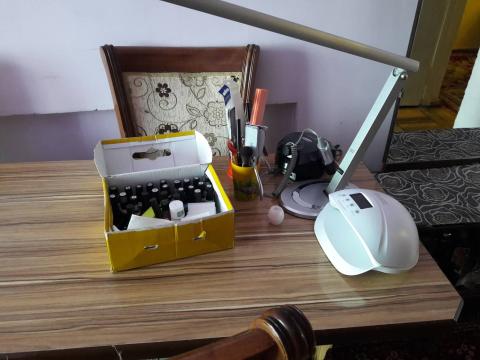Increasing economic resilience as a pillar of work with families

Liana’s family lives in Jermuk Community in Vayots Dzor. The family was in a difficult situation after Liana’s husband had a car accident two years ago.[1] Aharon’s injuries weren’t too serious, however the car that he used to drive as a taxi was completely destroyed. With the hope of earning a living to meet the needs of the children, together with her husband Liana temporarily moved to Russia, after which the children, Artak and Gevorg, remained in grandmother’s care. They attended school, but their parents' absence had a negative impact on their performance. The grandma had health issues but continued to work. The family's steady income was the grandma’s minimum wage, which was not enough to care for the children. After some time, one of the kids also got a health problem. A few years ago Artak tripped and fell down in school damaging his nose, as a result of which the child's teeth began to damage causing a shortness of breath. A few months later, the parents returned to Armenia, but the family's social status was still unstable. Debts had accumulated, and there was even a risk of losing the apartment.
Within the scope of “Community Level Access to Social Services (CLASS)” project, funded by the United States Agency for International Development (USAID) and implemented by World Vision and Child Development Foundation (CDF), the social worker of Jermuk Community, with the support of regional coordinator, began working with the family, conducting a complex, in-depth needs assessment.
The mother had a nail technician’s skills; however, she was unable to work due to the absence of necessary professional tools. Thus, the community social worker, in cooperation with the Social Assistance Territorial Department (SATD) case manager and with the supervision of CLASS regional coordinator, in line with the Individual Social Program, developed a comprehensive intervention plan based on the family’s most urgent needs and the existing issues. Family’s resources and opportunities were explored accordingly, and a set of professional tools for manicure was provided to the mother by Child Development Foundation to enhance the family's economic resilience.
Meanwhile, she was directed to the Community Employment Center to learn about and participate in appropriate vocational training programs.
A meeting was organized with the case manager of the local SATD to report on the family’s situation and receive appropriate state support.
The family was provided with counseling on the child's medical screening process in order to obtain a referral from the local polyclinic and receive appropriate treatment in the hospital free of charge.
In addition, Liana was involved in a two-day "Savings Game and Financial Literacy" training course organized by World Vision, which helped her gain substantial skills in saving and managing family finances.
Another significant event in this family’s life was that the father was also able to find a job. Aharon started working as an auto mechanic ensuring a steady income for the family.
Thanks to the implemented actions, the family now has a substantial income. The increased economic resilience has helped the family to raise confidence. Parents are working and are able to meet their children's needs. They also plan to start a small business - a beauty salon, where the mother will be able to serve more customers. Children feel safe now. They’ve already reported some success in their educational processes. They know that they are always in the spotlight, no longer alone, and supported by the community, state, and social institutions.
“I never imagined that I would ever be able to cope with the difficulties my family was facing as there was no professional support. I didn’t know whether to think about food, children's health, their educational needs, or spend the money on obtaining tools for manicure, work and get professional skills. Now I am convinced that any difficulty can be overcome’; - says Liana.
This family is one of the hundreds that, thanks to the continuous work of experienced social workers, makes another steady step toward a more prosperous future.
Since 2017, thanks to the USAID funded “CLASS” project, a social case management process has been applied and implemented in Jermuk Community resulting in a targeted support of more than 15 families.
“Before the implementation of the project we didn’t know that there were that many families in need in Jermuk. The introduction of a community social worker enabled us all to come closer to the families of our community, assess the needs of each of them, and as a result of complex professional activities, provide targeted support to the families and their children in need”- said Gohar Tadevosyan; Staff Secretary of Jermuk Municipality.
CLASS implements the strategy of Graduation Approach, which is a multi-sector intervention supporting the most vulnerable families. The principle of this approach is to not only assess the families based on their most urgent needs, but to also evaluate and understand their capacities and resources and take out the existing potential upon which the economic resilience of the family should be built. We hope that the strategy of Graduation Approach of overcoming extreme poverty in communities will enable more families to become economically strong, resilient, and independent.
[1] Due to the nature of the content, names and identifying details have been changed to protect the privacy of individuals.